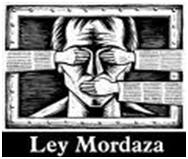
In the second half of April 2003, 75 dissidents were arrested and sentenced after summary trials. These cases were processed under Law No. 88, “For the Protection of the National Independence and of the Economy of Cuba.” The dissidents received sentences varying between 6 and 28 years of imprisonment. Internationally, these events were called “The Black Spring of Cuba.”
According to article 2 of this law (also known as “The Gag Law”), it has a special character and takes precedence over other criminal laws adopted prior to it. This gives rise to a suspicion: How do the authorities decide whether to apply this law or the Penal Code (PC) when both pieces of legislation deal with the same types of crimes, have equal rank and serve the same objectives?
The decision of which norm to apply is left to the discretion of the public prosecutors and the judges and depends on the political will to imprison a person who could not be found guilty if judged under the PC. Meaning that his or her conduct does not fall under any of the definitions of crimes established in the PC.
From both a technical and legal point of view, the elements of the crimes described in “The Gag Law” are formulated vaguely and are designed to sanction any behaviour that, according to the authorities, supports or facilitates the disturbance of the internal peace, seeks to destabilise the country or to destroy the “Socialist State” and the national independence.
In contrast to it, the PC describes types of behaviour that violate or pose a threat to the public life. From this point of view it is the damage to the society, whether potential or actually inflicted, that determines what type of conduct ought to be sanctioned criminally. This means that all citizens are involved in assessing the severity of a given circumstance, precisely because they are the ones affected by it. The judicial system should thus protect the citizens instead of repressing them.
It is inadmissible to make use of the criminal law in order to subjugate citizens and to impose a certain ideology. In other words, the rejection of a given philosophy (communist, liberal, etc.) is not an adequate argument justifying a sentence. There has to be damage to the society.
The punishment of the 75 opponents of the regime, sentenced in accordance to Law 88, showed how its existence serves to legally justify repression under the cover of an alleged public interest. It’s selective application intensified its effectiveness as a warning to others. Indirectly, the regime influenced the rest of the dissidents within the country. It demonstrated its power as well as the lengths it is willing to go to in order to preserve it.
Laritza Diversent
Translated by: undef@rocketmail.com
To comment on this article please visit:
Lartiza’s Blog: Laritza’s Laws and Legal Advisor

 Image:
Image: 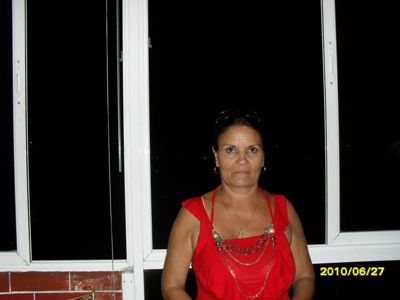

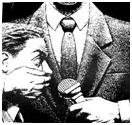 The Cuban Penal Code (CP) characterizes and punishes behavior that goes against the security of the state, the economy, public policy, etc. But in a different area of the law there is another criminal provision, which carries the same weight and promotes the same goals: Law No. 88, “Protection of National Independence and the Economy,” popularly known as “the Gag Law.”
The Cuban Penal Code (CP) characterizes and punishes behavior that goes against the security of the state, the economy, public policy, etc. But in a different area of the law there is another criminal provision, which carries the same weight and promotes the same goals: Law No. 88, “Protection of National Independence and the Economy,” popularly known as “the Gag Law.”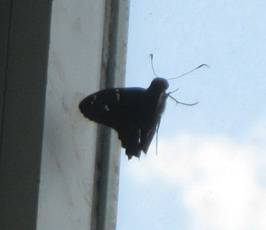

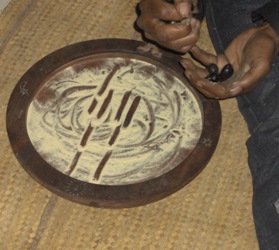 Movement is a universal property: nature changes and society changes. The difference is that changes in nature respond to objective laws which operate with or without human involvement, while history is made by men, allowing them to hasten or delay change, but not to stop it. The need for social change manifests itself as a permanent dissatisfaction with what has been achieved, which makes society a perfectible entity.
Movement is a universal property: nature changes and society changes. The difference is that changes in nature respond to objective laws which operate with or without human involvement, while history is made by men, allowing them to hasten or delay change, but not to stop it. The need for social change manifests itself as a permanent dissatisfaction with what has been achieved, which makes society a perfectible entity.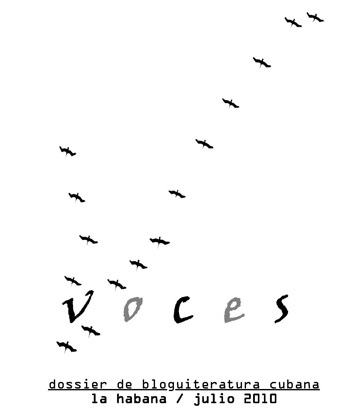
 He received me on Monday in a quiet apartment in Mantilla from where he has written almost all his work. On a polished table he put cold water and strong coffee for both of us. He lit a cigarette whose smoke, luckily, chose as its victim the bust of Cervantes resting on a nearby sideboard. And began to answer my questions.
He received me on Monday in a quiet apartment in Mantilla from where he has written almost all his work. On a polished table he put cold water and strong coffee for both of us. He lit a cigarette whose smoke, luckily, chose as its victim the bust of Cervantes resting on a nearby sideboard. And began to answer my questions.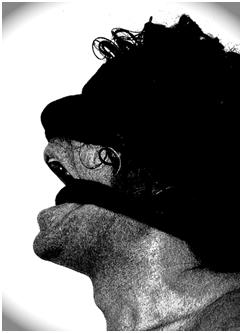 Freedom of expression is internationally recognized in the Declaration of Human Rights (Article 19). These prerogatives include being safe from oppression due to expressing an opinion, conducting research and receiving and spreading information, regardless of borders, by any means.
Freedom of expression is internationally recognized in the Declaration of Human Rights (Article 19). These prerogatives include being safe from oppression due to expressing an opinion, conducting research and receiving and spreading information, regardless of borders, by any means.